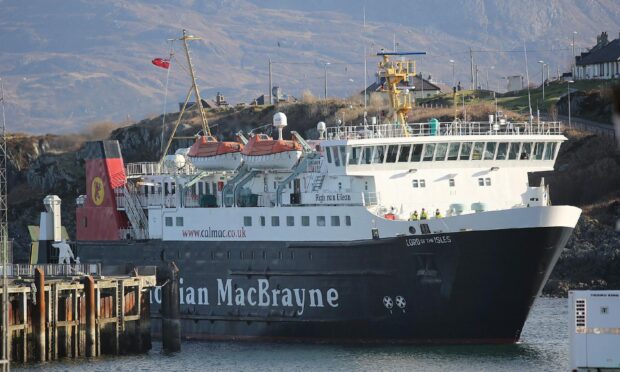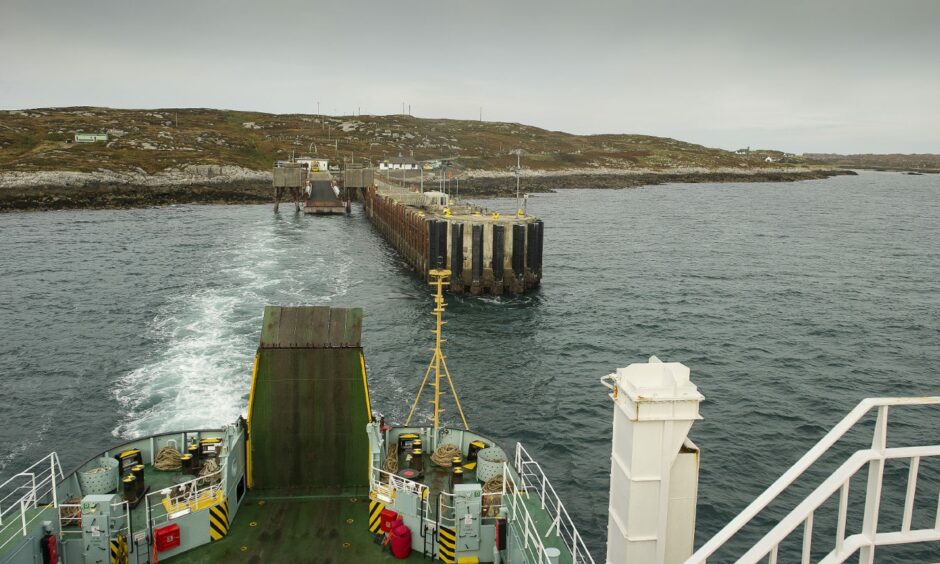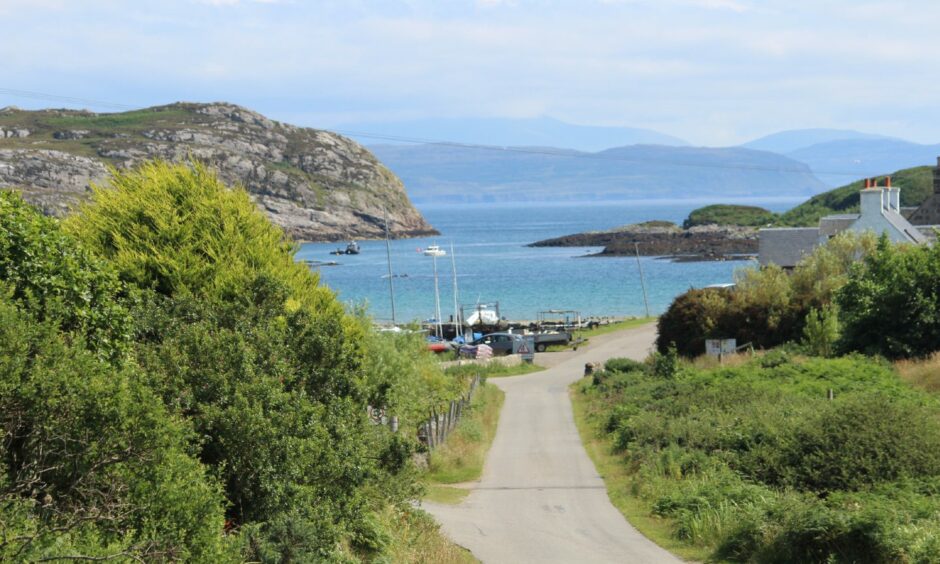Islanders facing constant ferry disruption on Coll have launched a scheme to record the cost and impact.
Thanks to cancellations, there were only an average of three ferries a week to Coll last month.
This is despite the 175 inhabitants being given written assurances by CalMac that their winter service would improve.
Residents are suffering constant disruption, cancellations and the inevitable ensuing costs on the remote isle.
Now Coll Community Council has launched a simple form, the Ferry Costs Record, to document these costs.
Aging ship MV Lord of the Isles (Loti) has been deployed on the route from Oban to Coll and Tiree. It is covering as a result of knock-on effects of drydocking and technical problems within CMAL’s fleet.
People on Coll were originally assured by CalMac this stand-in vessel would be there for no longer than two weeks.
But, having arrived on January 19, it is now expected to be there until at least March 12.
Stand-in ferry has difficulty berthing at Coll
Loti has limited capacity, weight restrictions and often has difficulty berthing successfully at Coll.
The island normally has five sailings per week and there is no other ferry to the mainland.
Last month the level of service equated to about three sailings a week. The important link suffered more than a 50% service failure.
Out of the 22 scheduled sailing days in January, 16 of these days were on disruption alert.
Coll Community Council has huge concerns that there is still no clear indication what the immediate benefit will be, when new ships ordered by CMAL come into service.
Much-needed infrastructure improvement is not timetabled for the island’s pier for at least another 10 years.
Plus, a suitable new ferry for Coll and Tiree is listed as the last major vessel for replacement within CMAL’s fleet.
Members of the community council say the constant damage to the local economy and general well-being of the community simply cannot go on.
‘Weather related cancellation threshold is lower than before’
Rob Wainwright farms on the island and is chairman of Coll Community Council. He said: “We’re a small, remote island community, totally dependent on one functioning ferry route off and on to the island. Our problems tend not to get the media spotlight.
“Right now during the winter timetable of five ferries per week, when CalMac should be pulling out all the stops, the threshold for forecasted wind-related cancellation is so much lower than this island has been used to, that the community is losing faith in the reliability of the service.”
Island residents, services and businesses can fill it in every time there is a departure from the official timetable or an inability to travel.
Businesses hit by cancellations, late deliveries or extra costs will be able to pass on real figures. The effects on the medical and postal services can be documented. And the hidden costs on the lives of islanders will be exposed in greater depth.
Data will be used to argue for improvements to service
The information will be used to strengthen arguments for an urgent improvement in ferry services. It will be presented anonymously.
Mr Wainwight added: “Last August the MSP for the Western Isles called for businesses hit by technical breakdowns to get compensation from the government. We believe this is the way to go. And not just because of technical breakdowns but when there are unsuitable vessels failing to deliver the timetabled service to places like Coll.
“Businesses are affected and we also want to start quantifying the unseen wider impacts that are making Coll a difficult place to work and live in.”
The Ferry Costs Record is available in paper form at outlets in the main village of Arinagour and online from Coll Community Council’s website.
CalMac responds
Robbie Drummond, chief executive of CalMac, said: “Severe weather conditions and delays in vessels returning from their legally required annual maintenance periods has placed a strain on services. There are not any spare vessels we can use to replace them and, in these instances, we sometimes have to move vessels around the network in order to provide all routes with a service.
“Masters have legal responsibility for the safety of the passengers, crew and the vessels and they determine when it is safe to sail in the event of poor weather. We will not compromise on safety.”
He added that CalMac is investing record sums maintaining the fleet. This has increased from £20.5million in 2017, to more than £34m this year.
Several large and small new vessels will be welcomed to the fleet in the next few years.
Mr Drummond said: “We apologise to our customers and the local communities we serve for this recent disruption.”
Are you interested in more exclusive and breaking Highland and Islands news from the P&J? If so, why not join our dedicated Facebook page here



Conversation